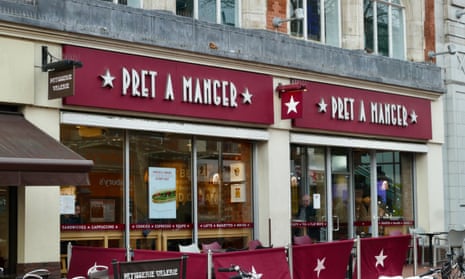Taylor Wimpey flags slowing sales amid broader economic uncertainty
Good morning, and welcome to our rolling coverage of business, the financial markets and the world economy.
One of the UK’s largest housebuilders has flagged that sales and reservations have weakened this year, as the housing market is cooled by higher interest rates.
But, there are also signs that the market may be picking up after demand slumped at the end of last year.
Taylor Wimpey reports this morning that its private sales rate is running at 0.62 homes per outlet per week so far this year, down from just over 1 per week in 2022.
The cancellations rate is running at 17%, up from 14% for the equivalent period in 2022, suggesting more customers are abandoning plans to buy a home.
Taylor Wimpey says that current trading does show “some signs of improvement from the fourth quarter of 2022” – when the market turmoil triggered by the mini-budget hit demand.
But, it adds, we are only at the start of the Spring selling season:
While it is encouraging to see an uptick in sales and ongoing robust customer interest in our homes, as previously announced, our reservation rate is significantly lower than in recent years as affordability concerns weigh, particularly for first time buyers, and we have reflected this in our build programmes for the year.
As this blog covered yesterday, UK mortgage approvals and lending fell in January while annual house price growth turned negative in February for the first time in almost three years.
Taylor Wimpey’s full-year results show that its pre-tax profits grew by almost 22% last year, to £827.9m from £679.6m.
Pricing-wise, the company expects average pricing for private completions in the first half of 2023 to be at a similar level to the £367k achieved on completions in the second half of last year.
Jennie Daly, chief executive, says ‘tight operational controls and price discipline’ helped to grow profit margins last year. But, she warns that the ‘weaker economic outlook’ will hit demand in the near term.
“In a year marked by two distinct halves, we acted quickly and decisively to address rapidly changing market conditions in the second half of the year and continued to focus on operational excellence and efficiency.
While the weaker economic backdrop continues to impact the near-term outlook, customer interest in our homes remains good and, whilst it is still early in the year, trading has shown some signs of improvement compared to Q4 2022.”
Also coming up today
We’ll hear the Bank of England’s chief economists’ views on the economic outlook today. Huw Pill will give a speech, on whether 2023 will be “a year of growth or survival”, this afternoon.
Yesterday, BoE governor Andrew Bailey signalled that interest rates may have peaked, after being raised 10 times in a row since December 2021.
The latest eurozone inflation data will show if the cost of living squeeze eased at all in February. Annual CPI inflation across the euro area is forecast to drop to 8.2%, from 8.6% in January, still four times the European Central Bank’s official target.
But, the report could be an ‘upside surprise’, fears Michael Hewson of CMC Markets. He points out that food prices continue to climb (as in the UK):
Hewson says:
Much was made of the fact that EU headline inflation saw a sharp drop from 9.2% in December to 8.6% in January, with many taking the view that we could well continue to see sharp declines in the headline numbers over the course of the coming months.
While an encouraging development, along with the sharp declines also being seen in headline PPI, any hopes of that continuing appear to have receded after this week’s flash CPI numbers from France, Spain and Germany, for February all of which saw surprise increases in the headline rate of inflation, driven by sharp increases in food prices.
The recent declines in headline inflation also aren’t being reflected in core prices, and as far as wages are concerned these are still rising.
The agenda
-
10am GMT: Eurozone inflation rate for February
-
10am GMT: Eurozone unemployment rate for January
-
12.30pm GMT: European Central Bank’s monetary policy meeting accounts
-
1.30pm GMT: US initial jobless claims report
-
3pm GMT: Bank of England chief economist Huw Pill gives a speech on ‘2023 economic outlook – a year of growth or survival?’
Key events
Shares in Taylor Wimpey have dipped by 1% at the start of trading, as the City digests this morning’s full-year results and its outlook for 2023.
UK homebuilders such as Taylor Wimpey are facing a ‘perfect storm’ as house prices drop, real wages continue to fall, and consumer confidence remains weak, with mortgage rates rather higher than a year ago.
Victoria Scholar, head of investment at interactive investor, explains:
“After rival Persimmon slumped 10% after warning that new home sales could fall 40% this year, Taylor Wimpey reported less pessimistic full-year results this morning. While the housebuilder saw its order book decrease to £2.15 billion versus £2.9 billion year-on-year amid weakness in the housing market, CEO Jennie Daly said trading was starting to show signs of improving, stemming a more aggressive slide in its share price.
The housebuilders are facing a perfect storm from weak consumer confidence, the fallout from last year’s mini-budget chaos, declining real wages, rising mortgages rates on the back of the Bank of England’s tightening path and softening house prices. The latest figures from Nationwide this week saw annual house price growth slow for the first time since the height of the pandemic.
However hopes that we could be approaching peak central bank rates provided a tailwind to shares including Taylor Wimpey in the sector at the start of 2023, although that optimism has been tapering off in recent weeks amid signs that inflation is taking longer than expected to normalise.”
Quilter Cheviot: Falling housebuyer confidence weakens 2023 outlook
Taylor Wimpey’s full year results this morning show it achieved a very robust performance in 2022, but faces a “challenging, but manageable, outlook” for 2023.
So says Oli Creasey, equity research analyst at Quilter Cheviot, who flags that the housebuilder hopes to maintain prices, while building fewer homes.
“What is particularly notable is the interplay between volumes and prices.
Taylor Wimpey has indicated that sale prices are likely to remain firm despite recent house price index evidence, with an average price for private completions of £367k – equal to the average over H2’22. However, the company also guided to a significant drop in volumes to a range of 9,000-10,500, a fall of around -30% year-on-year.
That equates to a weekly sales rate of 0.5-0.7x, and suggests further falling confidence amongst buyers given the sales rate for February was 0.66x, at the top end of this range. Likewise, it suggests that analyst consensus figures, which are currently forecasting 11,000+, are too high and will be downgraded this morning.
“The sales price is likely influenced by the level of reservations made prior to completion, which is lower than last year but still equal to over 8,000 homes / £2.2bn. Crucial to Taylor Wimpey’s strategy will be replacing these reservations for next year and at least maintaining or growing sales rates to more normalised levels.”
Taylor Wimpey expects to complete fewer homes this year than in 2022.
It blames the “prevailing market conditions” and “challenging planning backdrop”.
Between 9,000 and 10,500 new homes are expected to be completed in 2023, down from the 14,154 homes it finished last year.
Those completions will be “more weighted to the second half” of this year, due to the drop in sales since the third quarter of last year.
Taylor Wimpey’s order book has also weakened, a sign that sales in 2023 are under pressure.
At 26 February, it had 8,078 homes on total order book, down from 10,934 a year ago. That order book is worth £2.154bn, down from £2.9bn a year ago.
Pret hikes worker salaries to keep within minimum pay rules

Staff at sandwich chain Pret a Manger are getting a pay rise next month, as the company looks to avoid breaking minimum wage laws.
Pret a Manger will increase the salaries of its workers from April 1, when the National Living Wage (NLW) set by the government will increase.
Pret’s “team members” will see pay increase to between £10.60 and £11.90 per hour, up from £10.30- £11.55 per hour at present.
Barista pay will increase to between £11.20 and £12.85, depending on location and experience, up from £10.85-£12.50.
The move will keep Pret on the right side of the law, as the minimum amount companies are allowed to pay people over 23 is set to increase to £10.42.
Pret workers last saw their pay rise in December, as the hospitality sector scrambled to attract workers during the busy run-up to Christmas.
These wage rises should help Pret staff through the ongoing cost of living crisis, at a time when grocery inflation has hit a record 17.1%.
But it may add to the Bank of England’s concerns that inflationary pressures are building in the economy.
What a brilliant idea. Recognising tough times for those living on low incomes, and using your profits to ensure they are properly recompensed for the work they do. Would it catch on? Pret A Manger gives staff third pay rise in a year https://t.co/xO6GHPqmpt
— Benjamin Adams ⭐️ (@Mr_Ben_Adams) March 2, 2023
Taylor Wimpey flags slowing sales amid broader economic uncertainty
Good morning, and welcome to our rolling coverage of business, the financial markets and the world economy.
One of the UK’s largest housebuilders has flagged that sales and reservations have weakened this year, as the housing market is cooled by higher interest rates.
But, there are also signs that the market may be picking up after demand slumped at the end of last year.
Taylor Wimpey reports this morning that its private sales rate is running at 0.62 homes per outlet per week so far this year, down from just over 1 per week in 2022.
The cancellations rate is running at 17%, up from 14% for the equivalent period in 2022, suggesting more customers are abandoning plans to buy a home.
Taylor Wimpey says that current trading does show “some signs of improvement from the fourth quarter of 2022” – when the market turmoil triggered by the mini-budget hit demand.
But, it adds, we are only at the start of the Spring selling season:
While it is encouraging to see an uptick in sales and ongoing robust customer interest in our homes, as previously announced, our reservation rate is significantly lower than in recent years as affordability concerns weigh, particularly for first time buyers, and we have reflected this in our build programmes for the year.
As this blog covered yesterday, UK mortgage approvals and lending fell in January while annual house price growth turned negative in February for the first time in almost three years.
Taylor Wimpey’s full-year results show that its pre-tax profits grew by almost 22% last year, to £827.9m from £679.6m.
Pricing-wise, the company expects average pricing for private completions in the first half of 2023 to be at a similar level to the £367k achieved on completions in the second half of last year.
Jennie Daly, chief executive, says ‘tight operational controls and price discipline’ helped to grow profit margins last year. But, she warns that the ‘weaker economic outlook’ will hit demand in the near term.
“In a year marked by two distinct halves, we acted quickly and decisively to address rapidly changing market conditions in the second half of the year and continued to focus on operational excellence and efficiency.
While the weaker economic backdrop continues to impact the near-term outlook, customer interest in our homes remains good and, whilst it is still early in the year, trading has shown some signs of improvement compared to Q4 2022.”
Also coming up today
We’ll hear the Bank of England’s chief economists’ views on the economic outlook today. Huw Pill will give a speech, on whether 2023 will be “a year of growth or survival”, this afternoon.
Yesterday, BoE governor Andrew Bailey signalled that interest rates may have peaked, after being raised 10 times in a row since December 2021.
The latest eurozone inflation data will show if the cost of living squeeze eased at all in February. Annual CPI inflation across the euro area is forecast to drop to 8.2%, from 8.6% in January, still four times the European Central Bank’s official target.
But, the report could be an ‘upside surprise’, fears Michael Hewson of CMC Markets. He points out that food prices continue to climb (as in the UK):
Hewson says:
Much was made of the fact that EU headline inflation saw a sharp drop from 9.2% in December to 8.6% in January, with many taking the view that we could well continue to see sharp declines in the headline numbers over the course of the coming months.
While an encouraging development, along with the sharp declines also being seen in headline PPI, any hopes of that continuing appear to have receded after this week’s flash CPI numbers from France, Spain and Germany, for February all of which saw surprise increases in the headline rate of inflation, driven by sharp increases in food prices.
The recent declines in headline inflation also aren’t being reflected in core prices, and as far as wages are concerned these are still rising.
The agenda
-
10am GMT: Eurozone inflation rate for February
-
10am GMT: Eurozone unemployment rate for January
-
12.30pm GMT: European Central Bank’s monetary policy meeting accounts
-
1.30pm GMT: US initial jobless claims report
-
3pm GMT: Bank of England chief economist Huw Pill gives a speech on ‘2023 economic outlook – a year of growth or survival?’


